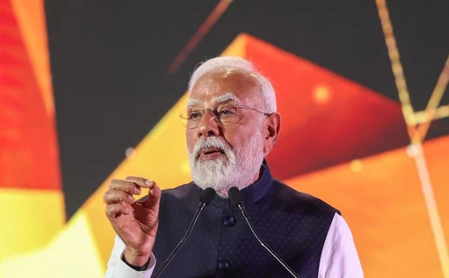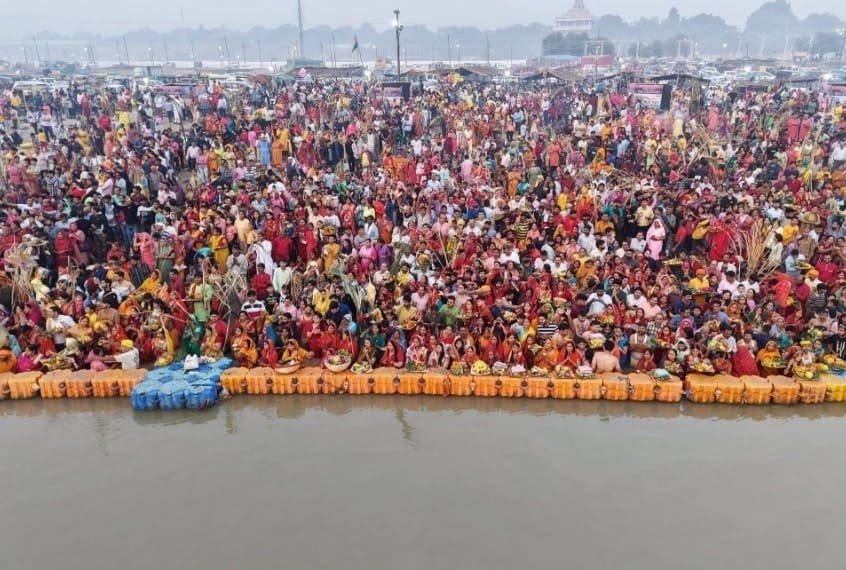New Delhi, : India and Saudi Arabia have expanded their bilateral Strategic Partnership Council by adding two new ministerial committees — one for defence cooperation and another for tourism and culture — during Prime Minister Narendra Modi’s state visit to the Middle Eastern nation on Tuesday.
This was PM Modi’s third visit to Saudi Arabia, at the invitation of Crown Prince and Prime Minister Mohammed bin Salman. The visit, however, was cut short due to the Pahalgam terror attack.
The two leaders co-chaired the second meeting of the Strategic Partnership Council and expressed satisfaction over the deepening cooperation across various fields including defence, energy, trade, investment, technology, and education. The Council now comprises four ministerial committees, reflecting growing engagement between the two nations, according to the joint statement released on Wednesday.
Both sides agreed to hold the next Strategic Partnership Council meeting at a mutually convenient date.
Both sides welcomed the steady growth in bilateral trade, with India now Saudi Arabia’s second-largest trading partner and the Kingdom being India’s fifth-largest. They agreed to expedite negotiations on the India-GCC Free Trade Agreement and signed several MoUs covering health, space, postal services, and anti-doping cooperation.
PM Modi also congratulated the Crown Prince for Saudi Arabia’s successful bids for World Expo 2030 and FIFA World Cup 2034, and also for successfully holding the Hajj in 2024, and expressed his appreciation for the excellent coordination between the two countries in facilitating the Hajj and Umrah experience for Indian pilgrims.
Both leaders expressed their appreciation for the efforts made towards achieving Vision 2030 in Saudi Arabia and Viksit Bharat 2047 in India. They agreed to collaborate in areas of mutual interest to fulfil their national goals and promote shared prosperity.
According to the statement, defence emerged as a key area of collaboration. The leaders lauded joint exercises like ‘SADA TANSEEQ’ and ‘AL MOHED AL HINDI’ and the recent initiation of tri-service staff-level talks. The launch of a ministerial committee on defence and emphasis on enhancing defence industry ties further marked a milestone in strategic cooperation.
In energy, both countries agreed to strengthen cooperation in oil, renewables, and green hydrogen. Notably, a joint study is underway on an electricity interconnection project. They also agreed to work closely on crude oil supply, refining, grid security, and energy efficiency.
In the field of climate change, both sides reaffirmed the importance of adhering to the principles of the United Nations Framework Convention on Climate Change and the Paris Agreement and the need to develop and implement climate agreements with a focus on emissions rather than sources.
India commended the Saudi’s launch of the ‘Saudi Green Initiative’ and the ‘Middle East Green Initiative’ and expressed its support for the Kingdom’s efforts in the field of climate change, the statement read.
On the economic front, both sides expressed satisfaction over the work of the High-Level Task Force, including progress on establishing two joint refineries and greater investment facilitation via the India Desk at Saudi Arabia’s Public Investment Fund (PIF). Both countries also pledged to fast-track a Bilateral Investment Treaty.
Cultural and educational exchanges also featured prominently, with both sides supporting greater cooperation in film, literature, heritage, sports, and academic partnerships. Saudi Arabia welcomed the presence of Indian universities in the Kingdom and agreed to expand collaboration in tourism and media.
Meanwhile, PM Modi appreciated the Saudi side for the continuing welfare of around 2.7 million Indian nationals residing there, reflecting the “strong” people-to-people bonds between the two nations, according to the statement.
In global forums, India and Saudi Arabia committed to stronger coordination within the G20, the IMF, and the World Bank to address economic challenges. They reaffirmed support for climate action initiatives and regional peace efforts, particularly in Yemen.
The leaders condemned the April 22 terrorist attack in Pahalgam, Jammu and Kashmir and called for global action against terrorism and terror financing, rejecting any linkage of terror to race or religion.
“They agreed that there cannot be any justification for any act of terror for any reason. They rejected any attempt to link terrorism to any particular race, religion or culture. They welcomed the excellent cooperation between the two sides in counter-terrorism and terror financing. They condemned cross-border terrorism and called on all states to reject the use of terrorism against other countries, dismantle terrorism infrastructure where it exists, and bring perpetrators of terrorism to justice swiftly,” the statement read.
During PM Modi’s visit, the MoU on cooperation in the field of medical products regulation between the Saudi Food and Drug Authority and the Central Drugs Standard Control Organization (CDSCO) was extended for a further five years.
India and Saudi also recalled the signing of the MoU on the principles of an India-Middle East-Europe Economic Corridor along with other countries in September 2023 during the state visit of the Crown Prince to India and expressed mutual commitment to work together to realise the “vision of connectivity as envisaged in the corridor.”
–IANS
int/sd/






